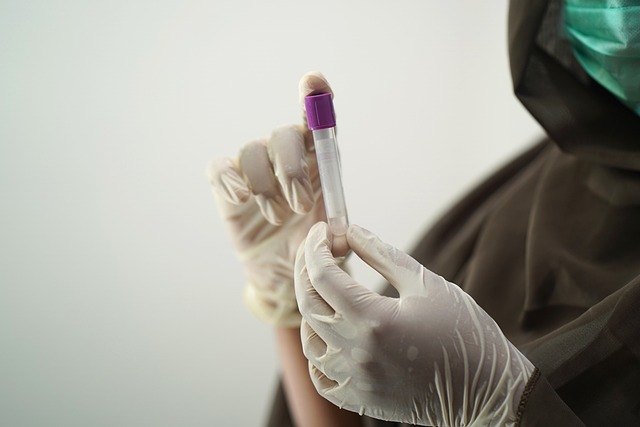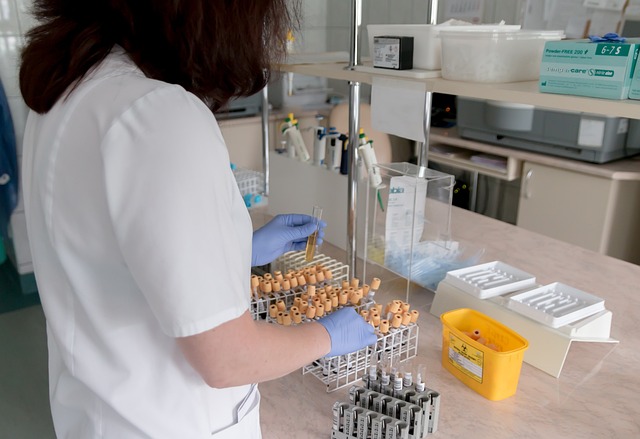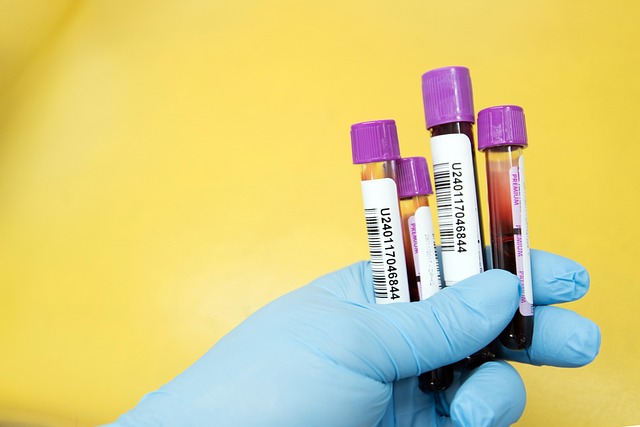The UK Well Person Blood Test is an essential diagnostic tool for assessing reproductive health by measuring key hormones like FSH, LH, estradiol, progesterone, TSH, and testosterone. It helps healthcare professionals identify and manage conditions such as PCOS, thyroid issues, and the effects of hormonal birth control, which can impact menstrual patterns and fertility. This test enables personalized treatment plans, aiding in conception efforts and improving overall reproductive health outcomes by facilitating early detection and effective management of potential disorders. Regular use of this test provides data-driven guidance for both patients and clinicians, particularly beneficial for those with irregular cycles, recurrent miscarriages, or those optimizing their fertility window. It enriches proactive health management by offering a comprehensive view of an individual's hormonal status, thereby reducing the stress and uncertainties associated with reproductive health concerns. The UK Well Person Blood Test is an invaluable resource for early diagnosis and intervention in reproductive health, contributing to a more predictive and preventative approach within the UK healthcare system.
Exploring the nuances of reproductive health, this article sheds light on the pivotal role of hormone analysis through the UK Well Person Blood Test. Delving into how this test can identify and address reproductive issues, it provides a comprehensive guide to understanding hormonal markers indicative of fertility. By examining the intricacies of interpreting these results, readers will gain valuable insights into the diagnostic process and how it can pave the way for targeted treatments, enhancing their reproductive health journey.
- Understanding Hormone Analysis Through the UK Well Person Blood Test for Reproductive Health
- The Role of Hormone Testing in Identifying and Addressing Reproductive Issues
- Navigating the Results: Interpreting Hormone Levels from the UK Well Person Blood Test for Fertility Assessment
Understanding Hormone Analysis Through the UK Well Person Blood Test for Reproductive Health

The UK Well Person Blood Test serves as a comprehensive tool for assessing reproductive health by providing insights into hormone levels, which are pivotal in understanding the complexities of the menstrual cycle and fertility. This blood test measures key hormones such as follicle-stimulating hormone (FSH), luteinizing hormone (LH), estradiol, progesterone, thyroid-stimulating hormone (TSH), and others that play critical roles in the reproductive process. By analyzing these hormones, healthcare professionals can identify imbalances or disorders that may underlie reproductive issues, such as polycystic ovary syndrome (PCOS), hormonal birth control effects, or thyroid dysfunction, all of which can impact a woman’s menstrual cycle and fertility. The test results help in tailoring treatment plans to address these imbalances, thereby improving the chances of conception for those trying to conceive and enhancing overall reproductive health outcomes.
The integration of the UK Well Person Blood Test into the routine healthcare of individuals can facilitate early detection and management of reproductive health concerns. It empowers both patients and clinicians with data-driven insights, fostering informed decision-making. The test’s ability to monitor hormonal changes over time is particularly advantageous for women experiencing irregular menstrual cycles, recurrent miscarriages, or those wishing to optimize their fertility window. By providing a clearer picture of an individual’s hormonal status, the UK Well Person Blood Test supports proactive health management and can alleviate the stress and uncertainty associated with reproductive health issues.
The Role of Hormone Testing in Identifying and Addressing Reproductive Issues

Hormone imbalances can significantly impact reproductive health, leading to a spectrum of issues that may affect fertility and overall well-being. In the UK, healthcare professionals increasingly recommend Well Person Blood Tests as a proactive approach to monitor hormonal health. These tests measure key hormones such as follicle-stimulating hormone (FSH), luteinizing hormone (LH), estradiol, progesterone, testosterone, and others that play critical roles in the reproductive cycle. By identifying deviations from normal ranges, healthcare providers can pinpoint underlying reproductive issues, ranging from polycystic ovary syndrome (PCOS) to hormonal imbalances leading to infertility. Early detection through the UK Well Person Blood Test enables timely intervention, which can improve treatment outcomes and enhance the chances of conception.
The integration of these comprehensive blood tests into routine health assessments allows for personalized care plans tailored to each individual’s hormonal profile. For those experiencing symptoms suggestive of reproductive issues, such as irregular menstrual cycles or difficulty conceiving, hormone testing provides a clear path forward. It empowers patients and clinicians with data-driven insights, facilitating informed decision-making about the most appropriate treatment options. Whether for fertility planning or managing established conditions like endometriosis or premature ovarian insufficiency, the UK Well Person Blood Test serves as an invaluable diagnostic tool, fostering a more predictive and preventative approach to reproductive healthcare.
Navigating the Results: Interpreting Hormone Levels from the UK Well Person Blood Test for Fertility Assessment

The UK Well Person Blood Test offers a comprehensive analysis of hormone levels that can be instrumental in assessing reproductive health. When interpreting the results of this test, it is crucial to consider the reference ranges provided by the laboratory performing the analysis. These ranges are based on data from a healthy population and serve as a benchmark for what is typically expected for each hormone. For instance, follicle-stimulating hormone (FSH) and luteinizing hormone (LH) levels can offer insights into ovarian function in women, while testosterone and other androgen levels are indicative of overall male reproductive health. Progesterone and estradiol measurements are particularly significant for understanding the menstrual cycle and identifying potential imbalances that could affect fertility.
Healthcare providers will take into account not only the absolute hormone values but also the interrelations between different hormones, as well as the patient’s medical history, age, and clinical symptoms. For example, elevated levels of FSH and LH might indicate decreased ovarian reserve, a condition where the ovaries progressively lose their follicles and are less able to respond to gonadotropins. Similarly, abnormalities in testosterone or estrogen levels can be indicative of hormonal disorders such as polycystic ovary syndrome (PCOS) or hypogonadism in men. It is through this nuanced approach that the UK Well Person Blood Test becomes a valuable tool for early diagnosis and intervention in reproductive issues, facilitating personalized treatment plans and improving outcomes for those seeking to understand their fertility. Understanding hormone levels from the blood test is not a standalone diagnostic method but a piece of the broader clinical picture that healthcare professionals use to support patients in their journey to conception or to manage reproductive health concerns.
In conclusion, hormone analysis through the UK Well Person Blood Test emerges as a pivotal tool in the early detection and management of reproductive issues. By offering insightful data on an individual’s hormonal profile, this test empowers both patients and healthcare providers to make informed decisions about fertility assessment and the treatment of reproductive disorders. Interpreting the results requires expert knowledge, but when harnessed correctly, it can lead to tailored interventions that significantly improve health outcomes. For those grappling with fertility concerns, the UK Well Person Blood Test is a step towards understanding their body’s unique chemistry and taking proactive steps towards resolution. It underscores the importance of regular health screening as a means to proactively address reproductive health challenges.
